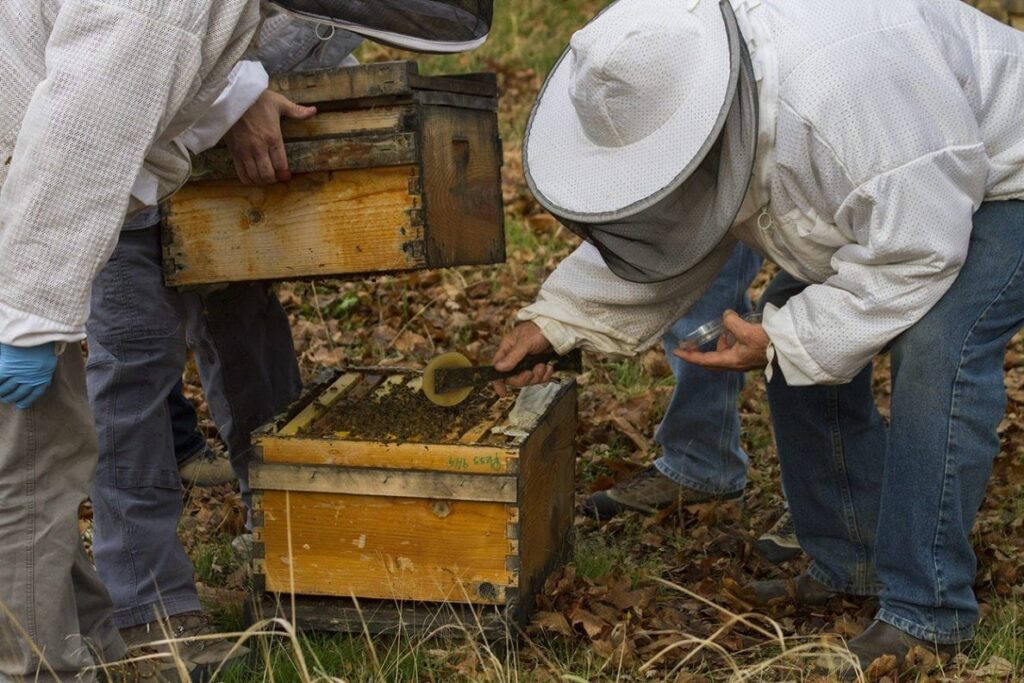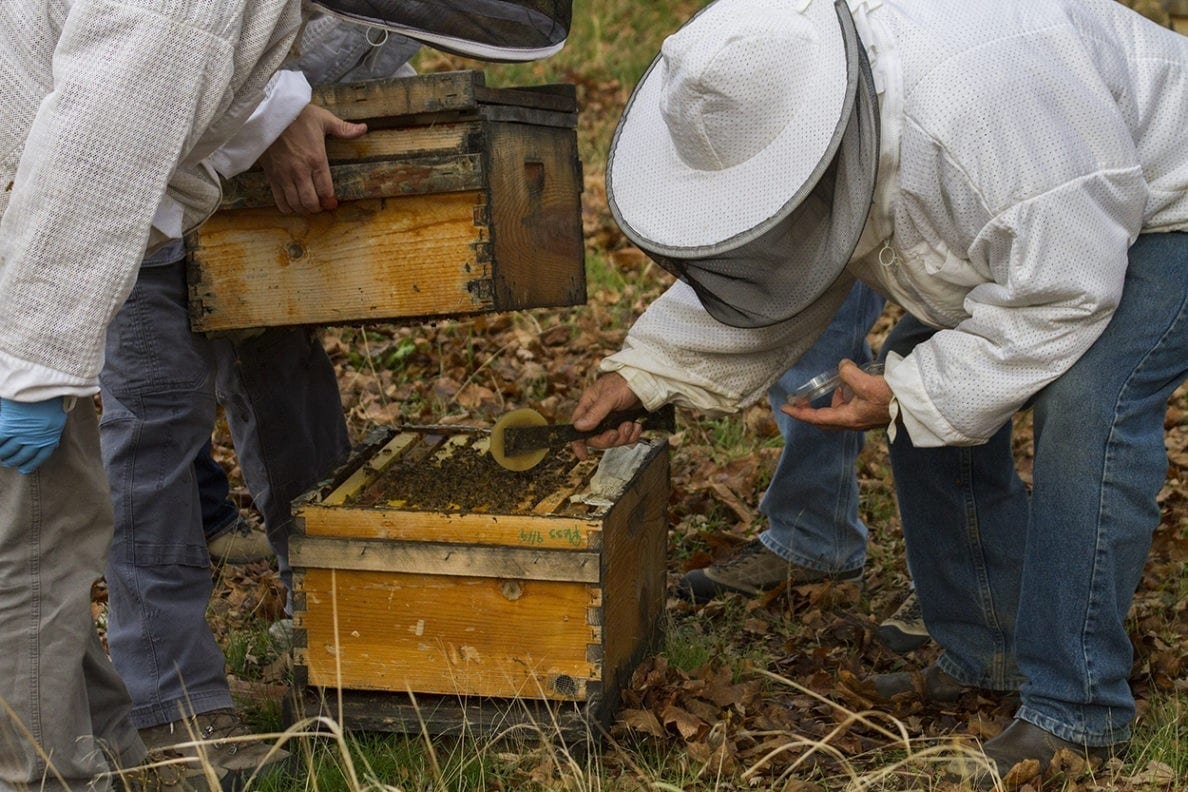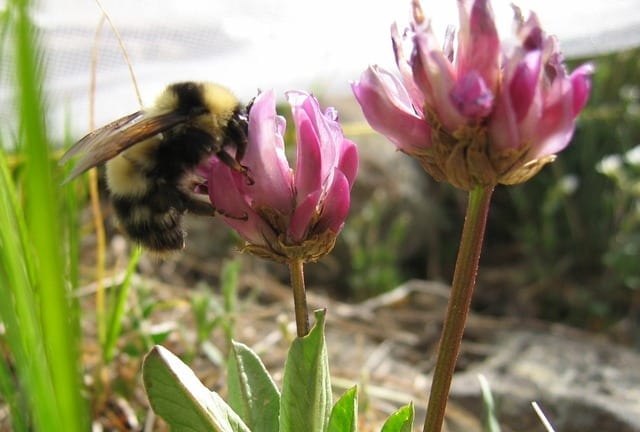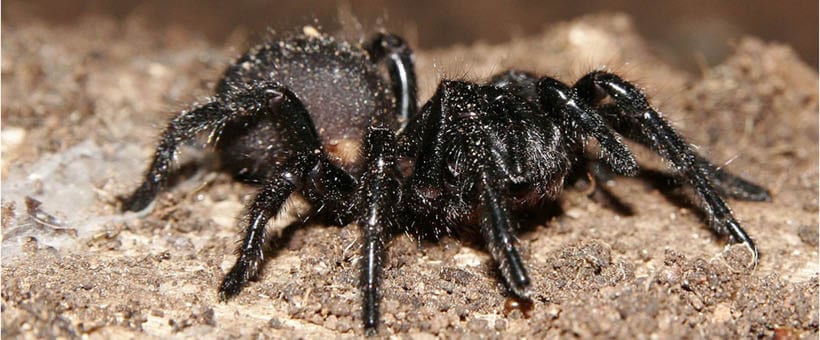
A mushroom extract fed to honeybees greatly reduces virus levels, according to a new paper from Washington State University scientists, the USDA and colleagues at Fungi Perfecti, a business based in Olympia, Washington.
In field trials, colonies fed mycelium extract from amadou and reishi fungi showed a 79?fold reduction in deformed wing virus and a 45,000?fold reduction in Lake Sinai virus compared to control colonies.
Though it’s in the early stages of development, the researchers see great potential in this research.
“Our greatest hope is that these extracts have such an impact on viruses that they may help varroa mites become an annoyance for bees, rather than causing huge devastation,” said Steve Sheppard, a WSU entomology professor and one of the paper’s authors. “We’re excited to see where this research leads us. Time is running out for bee populations and the safety and security of the world’s food supply hinges on our ability to find means to improve pollinator health.”
The research was published in the journal Scientific Reports.
The hope is that the results of this research will help dwindling honeybee colonies fight viruses, that are known to play a role in colony collapse disorder.
“One of the major ways varroa mites hurt bees is by spreading and amplifying viruses,” Sheppard said. “Mites really put stress on the bees’ immune systems, making them more susceptible to viruses that shorten worker bee lifespans.”
Partnership with Fungi Perfecti, LLC
This is the first research paper to come out of a partnership between Sheppard’s lab and Fungi Perfecti. Their co?owner and founder Paul Stamets is a co?author on the paper.
“Paul previously worked on a project that demonstrated the antiviral properties of mycelial extracts on human cells,” Sheppard said. “He read about viruses hurting bees and called us to explore the use of the extracts on honeybees. After two years, we demonstrated that those antiviral properties extend to honeybees.”
Stamets is passionate about the various benefits of fungi, both to humans and wildlife. And he’s been enjoying this partnership with Sheppard and his lab.
“This is a great example of connecting the dots between two fields of biological science,” Stamets said. “I am excited about new discoveries and opportunities. For me, the best of science is when it is used for practical solutions. Our team is honored to work with WSU researchers and look forward to continuing collaboration.”
Limited supplies
Right now, the mycelium extract isn’t currently available in levels for beekeepers to purchase for their hives.
“We are ramping up production of the extracts as rapidly as is feasible, given the hurdles we must overcome to deploy this on a wide scale,” Stamets added. “Those who are interested in being kept up to date, can sign up for more information at Fungi.com.“
Sheppard said he and his colleagues plan to do more work to refine their now?published results. That way beekeepers will have the best information when supplies are more available.
“We aren’t sure if the mycelium is boosting the bees’ immune system or actually fighting the viruses,” Sheppard said. “We’re working to figure that out, along with testing larger groups of colonies to develop best management practices and determine how much extract should be used and when to have the best impact.”
Mites and viruses
Over the last decade, beekeepers have seen a disastrous decline in the health of honeybee colonies, often averaging over 30 percent loss annually. Varroa mites, and the viruses they proliferate, play a major role in those losses. Deformed wing virus, which causes shriveled wings on bees, greatly reduces the lifespan of worker bees.
Lake Sinai virus is also associated with varroa mites and is widespread in bee colonies around the United States. While the virus has no obvious or overt symptoms, it’s an important virus to fight because it was found at higher levels in bees from collapsing colonies. It is closely related to chronic bee paralysis virus and it likely makes bees sick and weak, according to WSU assistant research professor Brandon Hopkins.
Treating with fungi
The treated bee colonies in this experiment were fed an oral treatment of mycelial extracts in dozens of small WSU bee colonies infested with varroa mites.
“It’s a really easy treatment to apply,” Sheppard said. “After we follow larger colonies for a full year, we can develop recommendations for how to use the extracts. Then it is expected that Fungi Perfecti will ramp up production.”
There is currently no timeline for when the extract would be available at a scale large enough for beekeepers.
Learn more: Fungus provides powerful medicine in fighting honeybee viruses
The Latest on: Honeybee viruses
[google_news title=”” keyword=”honeybee viruses” num_posts=”10″ blurb_length=”0″ show_thumb=”left”]
via Google News
The Latest on: Honeybee viruses
- Honeybee populations are hitting record numbers. Weren’t they dying off before?on May 16, 2024 at 5:10 pm
Today though, bees are still around. In fact, the U.S. might have more honeybees than ever, with more than 1 million bee colonies added in the last five years, bringing the total to nearly 4 million.
- Best Antivirus Software for 2024on May 14, 2024 at 2:00 pm
Clifford is a managing editor at CNET, where he leads How-To coverage. He spent a handful of years at Peachpit Press, editing books on everything from the first iPhone to Python. He also worked at ...
- Dairy Farmers Will Be Paid for Bird Flu Testing and Safety Effortson May 14, 2024 at 6:56 am
The federal government will pay dairy producers millions of dollars to participate in biosecurity efforts as health and agriculture officials attempt to better understand and safeguard both humans and ...
- The wasps that turned viruses into tiny biological weaponson May 14, 2024 at 5:00 am
There’s nothing special about having a genome full of dead viruses. Viruses jump into animal genomes all the time; even our own DNA is littered with their remains. But only parasitic wasps are known ...
- How to Treat a Bee Stingon May 13, 2024 at 5:00 pm
The treatment of bee and wasp stings depends on their severity. The majority of problems that require medical attention come from an allergic reaction to the sting. In most cases, complications ...
- 15 million bees contained after bee-laden truck crashes in Maineon May 11, 2024 at 11:51 am
A major accident occurred when a tractor-trailer carrying about 15 million honey bees, on a crucial journey to pollinate blueberry fields, overturned on a major highway in Maine, officials said.
- Truck carrying 15 million bees crashes on I-95 in Clinton, Maineon May 11, 2024 at 10:26 am
The driver of a tractor-trailer hauling millions of bees was taken to the hospital after it crashed on I-95 in Maine, state police said. Maine State Police said troopers responded to Clinton ...
- The wasps that tamed viruseson May 10, 2024 at 6:52 am
From a wasp’s perspective, viruses are like packages loaded with tools for solving this most dire problem. Support for this idea comes from 2023 research looking at the genomes of more than 120 ...
- The wasps that tamed viruseson May 9, 2024 at 11:52 pm
If you puncture the ovary of a wasp called Microplitis demolitor, viruses squirt out in vast quantities, shimmering like iridescent blue toothpaste. “It’s very beautiful, and just amazing that ...
via Bing News












